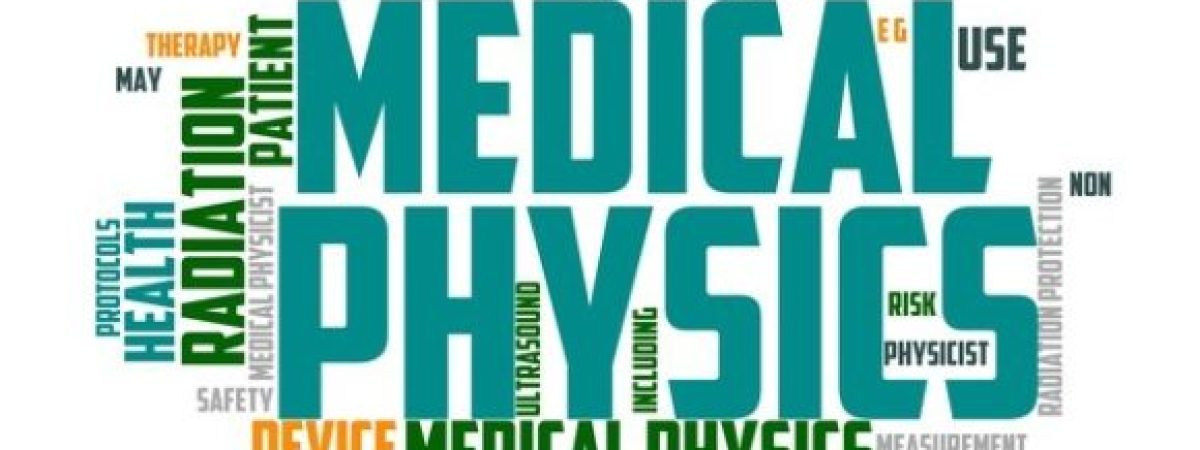The Ghana Society for Medical Physics (GSMP) has raised concerns and objected to the introduction of a Bachelor of Science (BSc) programme in Medical Physics at the CK Tedam University of Technology and Applied Sciences (CKT-UTAS).
It said Medical Physics, by convention, was run as a postgraduate academic programme globally due to the complex physics techniques and principles applied in the use of radiations for diagnosis and treatment of medical conditions such as cancers and other degenerative health conditions.
“The GSMP will like to emphasise that Medical Physics (as an) academic programme is run purely at the postgraduate level, hence we request stakeholders, including the Ghana Tertiary Education Commission (GTEC), the Allied Health Professions Council (AHPC) and the governing board of the CKT-UTAS, to work together and immediately take steps to halt the BSc Medical Physics programme.
Failure to take this necessary and urgent step may have implications on medical physics professional practice in Ghana, and could have negative consequences, thereby putting patients in danger,” the General Secretary of the GSMP, Dr Shiraz Issahaku, told the Daily Graphic in an interview.
International bodies
Dr Issahaku, who is also the President of the Ghana Federation of Allied Health Profession, said for that reason, relevant international bodies such as the International Atomic Energy Agency, the International Organisation for Medical Physics, the Federation of African Medical Physics Organisations and the American Association of Physicists in Medicine had recommended an academic programme in medical physics to be strictly run at the Masters and PhD levels, and that undergraduate students seeking admission to pursue postgraduate Medical Physics programme were recommended to have a strong background in Physics, namely BSc Physics, to be able to comprehend the techniques applied in Medical Physics.
“To the utter surprise of the GSMP, we have come to realise that CKT-UTAS has been accredited by the Ghana Tertiary Education Commission (GTEC) to run an undergraduate programme in Medical Physics (BSc Medical Physics) and the programme has already enrolled students.
“Not only is this contrary to recommended international standards; it also raises serious questions about the quality of education being offered to students who have been admitted into the programme,” he said.
Medical Physics, he said, was a health profession which was rigorously regulated both nationally and internationally owing to the peculiar nature of its training and clinical practice, and that in Ghana, the profession was regulated by the AHPC of the Ministry of Health based on the regulatory provisions of the Health Professions Regulatory Bodies Act (ACT 857) of 2013.
Reasons
Dr Issahaku said in the establishment and certification of health-related academic programmes at the university, the health regulatory body responsible for such cadre of professionals needed to be consulted and inputs made into such programmes, and that in the case of Medical Physics, the AHPC had a mandate to regulate the clinical training and practice of professionals.
Moreover, he said, in addition to the theoretical component of a Medical Physics education and training, students were required to go through mandatory clinical hands-on practical exercises, supervised by a board-certified and clinically qualified medical physicist in an accredited health training institute of the Ministry of Health.
Checks
“Unfortunately, our checks indicate that no such arrangement is in place by CKT-UTAS for the training of the students who have been enrolled.
Clinical facilities for training such as nuclear medicine, diagnostic radiology and radiotherapy are not available at the disposal of CKT-UTAS for the training.
“There are no records of a clinical training programme that complements the theoretical component of their training,” he said.
Per national and international standards, Dr Issahaku said, specialised academic programmes which fed graduates directly into professional practice required the training institution to have a certain minimum number of qualified professionals in the related field as faculty.
“We are aware that in the practice of GTEC (Act 1023), any tertiary institution willing to introduce a specialised programme such as Medical Physics would require a minimum of three to five faculty members in the same specialised area of study the institution seeks to introduce.
However, in the case of CKT-UTAS, our checks indicate that not a single medical physicist is involved, either as faculty or teaching assistant, in the BSc Medical Physics programme which is being run by the university,” he said.
Such graduates, it said, might potentially flood the healthcare system and would be seen as “quarks”.
Petition to GTEC
Earlier, the President of the GSMP, Dr Eric Clement Desmond Kotei Addison, had petitioned the Director General of GTEC to halt the Bachelor of Science in Medical Physics programme at the CKT-UTAS.
In a letter dated February 1, 2024, it stated that it was “of interest to bring to your attention the introduction of BSc in Medical Physics at CK Tedam University of Technology and Applied Sciences, contrary to the established international and local standards of practice”.
Medical Physics programme, it said, was purely a postgraduate programme, which was internationally recognised by all international bodies and stakeholders.
“It beats our imagination how anybody could establish such a programme without the involvement of any of the key stakeholders in the country.
“In view of the above, we, therefore, appeal to you to take the necessary steps to immediately halt the BSc Medical Physics programme at the undergraduate level for the university to take the necessary steps to upgrade the programme to the postgraduate level or otherwise,” the letter said.
Source: https://www.graphic.com.gh/



